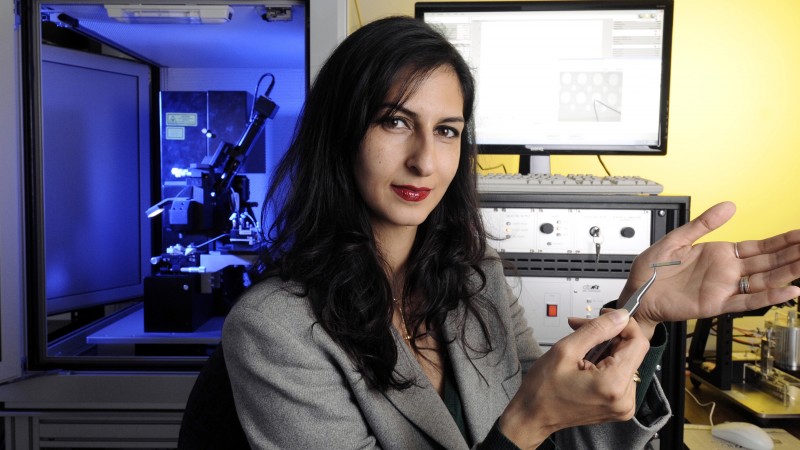Oak Ridge National Labs for GT Faculty

Get Acquainted with Oak Ridge National Lab
The purpose of these funds is to facilitate new collaborations and introductions of Georgia Tech faculty, students, and staff to Oak Ridge National Lab (ORNL). Funds are available for travel by individuals or small groups of Georgia Tech personnel.
The most common form of transportation used is personal vehicle with mileage reimbursement at the current federal rate. One night of hotel stay at federal government rate in Oak Ridge and per diem food costs are allowed for each participant. Generally, up to $350 is available per driver participant (and up to $200 per passenger participant) making the trip from Georgia Tech to ORNL.
As an alternate form of transportation, a couple of buses travel from Atlanta to Knoxville, TN. After arriving in Knoxville, transportation to Oak Ridge will need to be arranged. Uber will be the cheapest option but the price will vary based on the time of day ($20 – 35). A taxi will cost approximately $50.
Learn More
GT - ORNL Faculty Joint Appointments
The purpose of the Georgia Tech/ORNL Joint Faculty Program is to attract and recognize scientists and engineers with rising national or international stature and reputation at all academic levels, and to enhance the quality of science, technology, education and industrial development. Faculty with expertise in the sciences, engineering or related fields of research conducted by ORNL and who would benefit from an immersive experience at ORNL should consider this opportunity.
Georgia Tech and ORNL works together to identify candidates with research areas of joint interest to both institutions. Georgia Tech faculty interested in being considered for a joint appointment at ORNL should contact Dr. Julia Kubanek, Georgia Tech’s representative on the Core Partner University Liaison Committee.
GT-ORNL Joint Faculty
Georgia Tech Faculty Currently Jointly Appointed to ORNL:
- Marilyn Brown, Public Policy holds a joint appointment with ORNL’s Energy and Transportation Sciences Division
- Samuel Graham, Mechanical Engineering holds a joint appoint with ORNL’s Energy and Transportation Science Division.
- Nolan Hertel, Nuclear Engineering holds a joint appointment with ORNL’s Nuclear and Radiological Engineering Division and was acting director of the Center for Radiation Protection Knowledge
- Comas Haynes, Fuel Cells & Battery Technologies holds a joint appointment with ORNL’s Material Science and Technology Division
- Vivek Sarkar, Computer Science holds a joint appointment with ORNL's Computer Science and Mathematics Division
ORNL Researchers Currently Jointly Appointed to Georgia Tech:
- Costas Tsouris of ORNL’s Energy and Transportation Sciences Division
- Ramakrishnan Kannan of ORNL’s Computational Sciences and Engineering Division
ORNL Researchers with Adjunct Faculty Appointments
- Moe Khaleel, adjunct faculty in Materials Science and Engineering is Associate Laboratory Director for Energy and Environmental Sciences at ORNL
- Raymond Unocic, adjunct faculty in Materials Science and Engineering is a Senior R&D Staff Scientist at the Center for Nanophase Materials Sciences in the Electron and Atom Probe Microscopy research group at ORNL
- Kaylan Perumalla, adjunct faculty in Computer Science is Group Leader of the Discrete Computing Systems in the Computer Science and Mathematics Division at ORNL
Distinguished Staff Fellowship Program
Applications to the Oak Ridge National Laboratory Distinguished Staff Fellowship (DSF) program are accepted in three application cycles: January (winter), May (spring), and Sepember (fall). The program includes the Liane B. Russell, Alvin M. Weinberg, and Eugene P. Wigner Fellowships. The program cultivates future scientific leaders by awarding outstanding early-career scientists and engineers—who demonstrate success within their academic, professional, and technical areas—with resources and enriching research opportunities.
DSF Fellows represent a broad range of disciplines and are expected to establish the foundation for a long-term career at ORNL, while program mentors facilitate each Fellow’s integration into ORNL’s scientific community and alignment of their research activities with Laboratory and DOE missions.
DSF candidates must demonstrate their ability to contribute to one (or more) of the following research areas:
- Artificial intelligence and machine learning
- Breakthrough nuclear technologies and systems Complexity in biological and environmental systems Cyber-physical systems
- Development and manufacturing of integrated energy systems
- Discovery and design of new materials and chemical processes for energy Isotope production and applications
- Quantitative biology and genome security
- Quantitative biology and genome security
- Scaling computing and data analytics to exascale and beyond
- Science and applications of neutron scattering
- Science and technology to address complex security challenges
Applicants must have received their PhD in a STEM field before they begin their fellowship and can be no more than 5 years beyond receiving their highest technical degree when they apply. Current ORNL postdoctoral researchers and ORNL staff members are not eligible to apply.
ORNL’s DSF program continues to play a vital role in ensuring the accomplishment of the Laboratory’s mission of delivering scientific discoveries and technological breakthroughs needed to realize solutions in energy and national security and provide economic benefit to the nation.
Learn More Here

